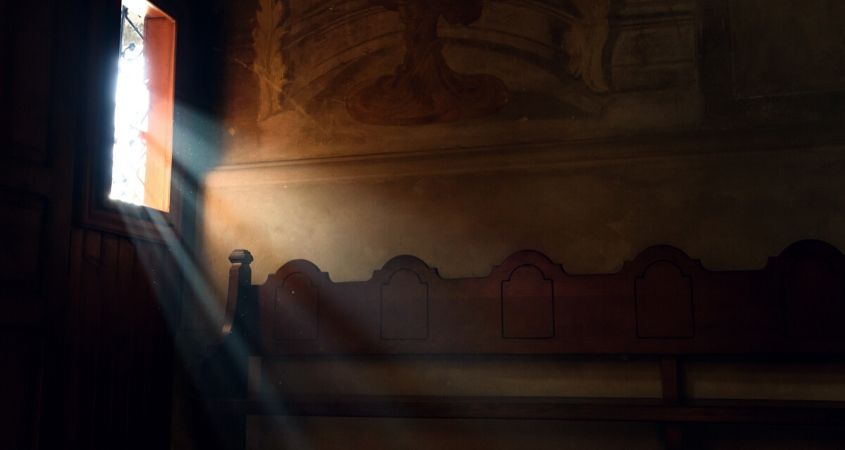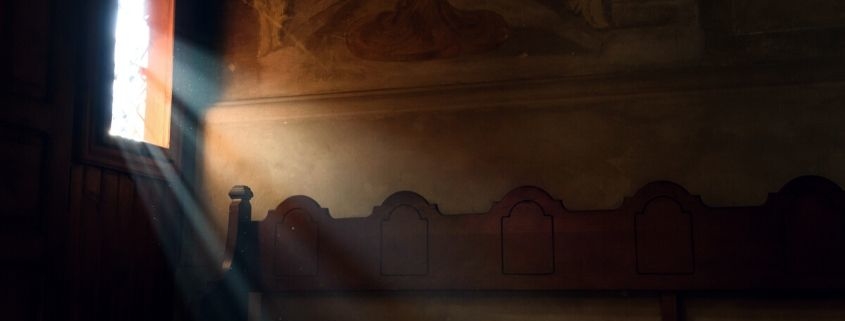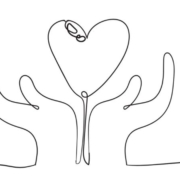Day 38: The Notion of “Thin Places”
BY CANDRA HEALY | April 3, 2020
Today’s Readings

John Mbiti teaches us that what people do is motivated by what they believe, and what they believe springs from what they do and experience. Belief and action, therefore, cannot be separated; they belong to a single whole. For nineteenth-century African American evangelical women preachers, Christianity functioned both as a central belief system and as a source of personal and political empowerment. The Bible offered narratives they could readily apply to their own experiences and a mode of discourse through which they could articulate the despair and aspirations of their people. Religious belief, in particular belief in God’s divine protection, became a source of self-empowerment, an authorization to act in this world.

Nineteenth-century African American evangelical conversion and sanctification experiences present similarities with the fifth century Celtic Christian notion of “thin places.” Those being an action (prayer), a person (Jesus), or a place (chapel) that helps us pass from the secular to the sacred, from the immanent to the transcendent, from the finite to the infinite. According to Marcus Borg, “open hearts” and “thin places” suggest much of what is central to being Christian. Thin places are places where the veil momentarily lifts and we behold God, experience the one in whom we live, all around us and within us—“right here.” Together these metaphors name both the goal and means of transformation for us as individuals, and in our life together as church.
Prophetic women insisted that their authority to preach had come directly from communication from God. They had been influenced not only by dreams, which were internal, but by visions and voices that had come from outside of themselves. When Zilpha Elaw claimed to have heard a voice proclaiming, “Thou must preach the gospel; and thou must travel far and wide,” she hastened to add, “This did not occur in the night, when dozing slumbers and imaginative dreams are prevalent, but at mid-day, between the hours of twelve and two o’clock.” As she informed her readers, she did not write or speak with her own authority, but with the authority of God. (Brekus, 1998, p.183-84)
What “thin places” do you find in your day to day life at this moment in time?
How are you being called to speak?
How are you being called to make space for voices given authority to speak by God whose voices may not always be heard in our society?
As director of development at Loyola Early Learning Center in Baltimore, Candra works with Fr. Bill Watters, S.J., to provide inner-city preschoolers with tuition-free scholarships funded primarily by private individuals. As chair of the Justice & Peace Committee at St. Ignatius Church Baltimore, she fulfills her passion for social justice alongside other committed volunteers in the areas of racial justice, immigration, economic justice, and environmental justice as an advocate for institutional change.









Thought provoking. Well written. Thanks, Candra Healy. I see a moving force and power in the article. It reminds me of the punch the late Reverend Pedro Arrupe would have in his moving thoughts, dynamic words, culminating into daring deeds.
Thank you very much Ms.Candra.
I followed up your excellent preaching
by reading The NY Times article on the life and passing of John Mbiti.
My wife and I are Jesuit educated and belong to St. Patrick Catholic Church, an African American Parish in
downtown Charleston SC.
We need African American women
and men preachers. And we also
need Women Deacons TODAY.
You would be wonderful!
In our parish St. William here in Louisville, KY, we have a virtual (Zoom) “service” each Sunday at 9:00 with more than 100 “zoomers” – with wonderful preaching from various lay persons – a great opportunity to have so much wisdom shared that could otherwise be unavailable to all.
Thank you, Candra Healy, for this timely word. John Mbiti’s name and quotes have come across my proverbial desk twice, today—once from the Rev. Dr. Melva Sampson quoting Mbiti when he says “There is no separation between the sacred and secular; where I am God is;” and secondly, in your blog. Hallelujah for the women in ministry of the nineteenth century who navigated “Thin Places.” I am finding “thin places” as we navigate Healthcare and General Chaplaincy and Ministry in the midst of the Global Pandemic known as COVID-19. We have been equipped and anointed for such a time as this, the Lord being our Helper.
“Those being an action (prayer), a person (Jesus), or a place (chapel) that helps us pass from the secular to the sacred, from the immanent to the transcendent, from the finite to the infinite.”
I live in a rural area. I am surrounded by LIFE both wild and domestic. It is spring and as I work in my garden, I see the return of migratory birds and hear their songs. In the distance there are beautiful, snow covered mountains. I am lucky. My whole world is a “Thin Place”. Coleman.